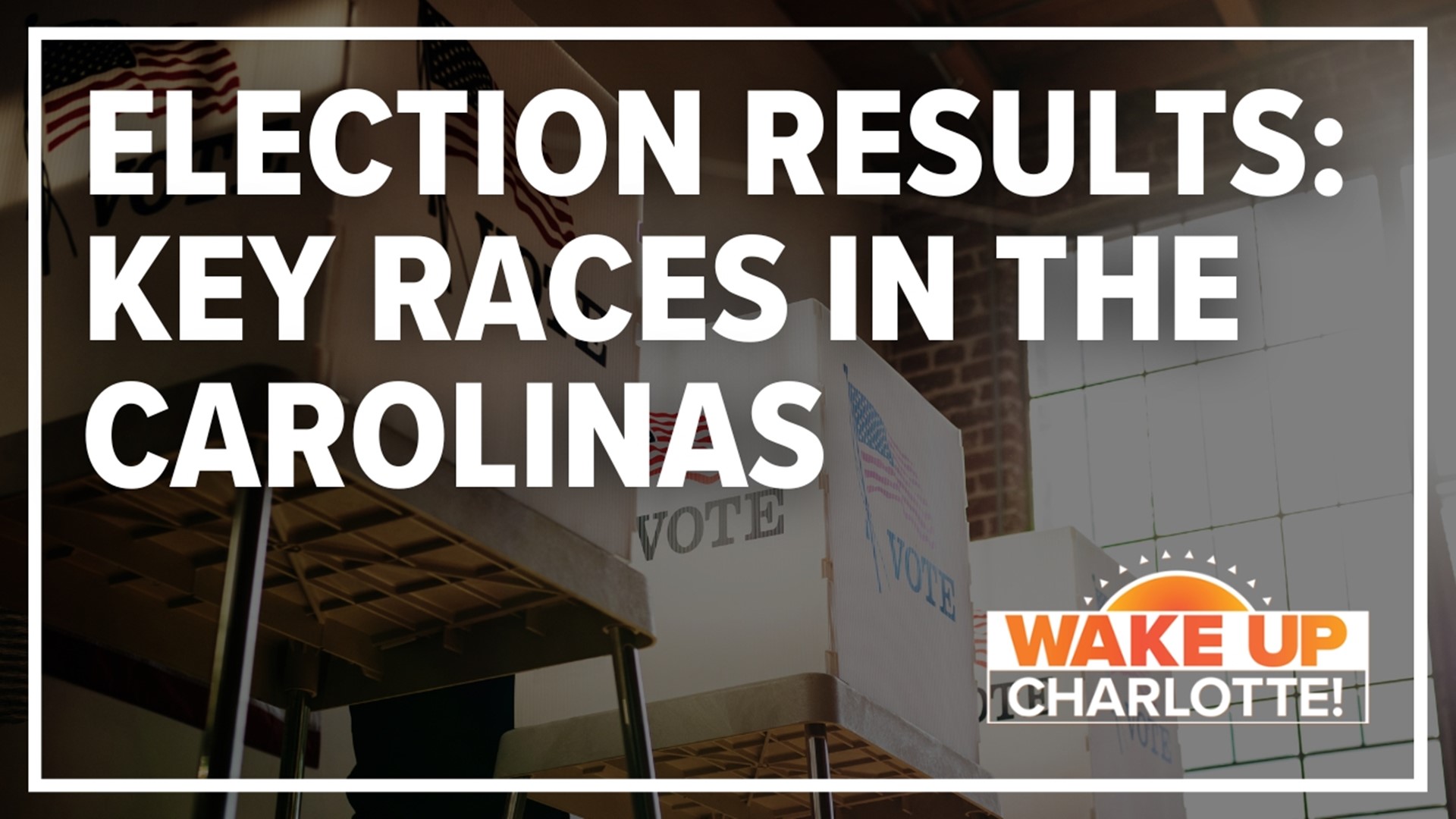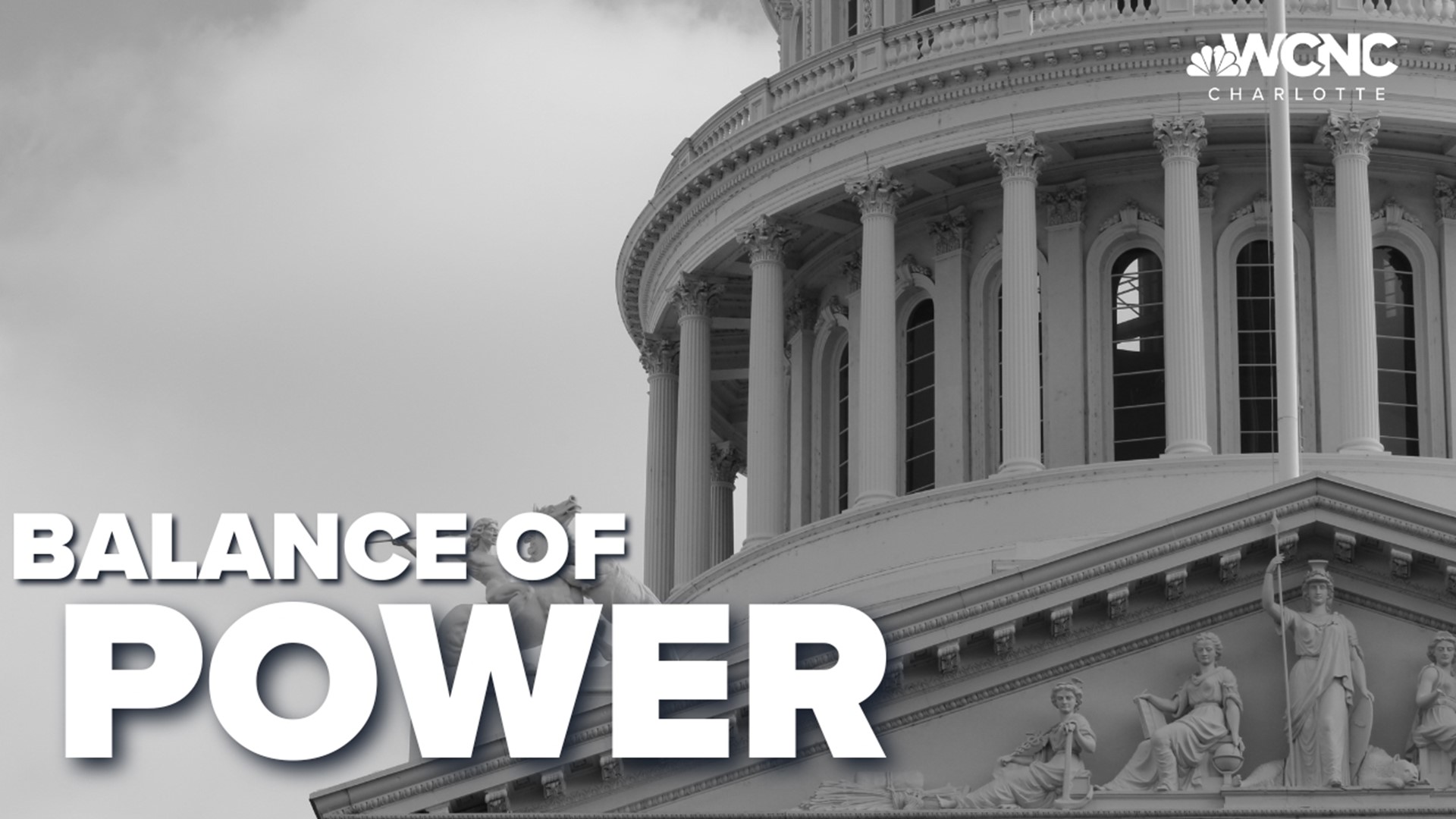RALEIGH, N.C. — North Carolina Democrats appeared successful — but just barely — in preserving Gov. Roy Cooper’s veto power to block Republican bills on abortion and other divisive issues by tamping down GOP seat gains at the General Assembly.
Results from Tuesday’s elections show that Republicans were headed toward gaining a veto-proof majority in the Senate by winning 30 of the chamber’s 50 seats. They currently hold 28. Results have Republican candidates winning 29 seats and leading in the race for one more seat.
“We’ve seen a lot of great initiatives that the people of North Carolina have wanted be stalled quite frankly by the lack of a veto-proof majority. We’re going to be able to have state government that works for the people without that type of problem," newly-elected state Senator Brad Overcash, who will represent Gaston County in District 43 said.
RELATED: 2022 midterm election results
But it appears the GOP fell short in getting the three additional House seats they needed to win a similar majority there, too, according to political leaders. House Majority Leader John Bell said the Republicans won 71 of the 120 seats — one short of the 72 necessary for a veto-proof margin.
This means Republican leaders won’t be able to successfully override Cooper’s vetoes at will during his final two years in office — even if GOP lawmakers are united — unless they get help from at least one Democrat.
“We have one seat. That is the difference between Republican supermajority and bipartisanship in North Carolina," Rep Wesley Harris said. Harris was re-elected to District 105, representing south Mecklenburg County. "So, there is going to be a lot of pressure on Democrats to hold firm next year and make sure we can sustain Governor Cooper's veto when it comes to it. That is the only way we’re going to get bipartisan compromise in North Carolina which is what our people want."
Republican majorities haven’t been veto-proof since late 2018. Most of Cooper’s vetoes were overridden during that previous two-year period. But since early 2019, none of Cooper’s 47 vetoes have been overridden.
The shortfall marked a significant victory for Cooper, who made preserving the value of his vetoes a top priority during this fall’s elections.
Some Democrats are still concerned about the implications.
“We saw last time Republicans had a supermajority in the general assembly, some of their worst instincts go unchecked," Senator Natasha Marcus, who was re-elected to represent District 14 in the State Senate said. "HB2 comes to mind immediately which was not only terrible for Mecklenburg County and a slap in the face of Charlotte voters who wanted some nondiscrimination ordinances to go into place here but was bad for our entire state's economy, our reputation."
Cooper and his Democratic allies raised and spent millions of dollars during the campaigns warning voters that Republicans could pass severe abortion restrictions if they gained veto-proof majorities.
“We stopped a GOP supermajority ... when North Carolinians voted for balance and progress,” Cooper tweeted late Tuesday night. “I’ll continue to work with this legislature to support a growing economy, more clean energy, better health care and strong public schools."
Republicans have said they were prepared to consider additional abortion restrictions next year in light of the U.S. Supreme Court striking down Roe v. Wade. Now it’s unclear if they’ll advance on this issue or how.
Abortion is prohibited in North Carolina after 20 weeks of pregnancy, with some narrow exceptions. Cooper’s vetoes foiled limited abortion changes in 2019 and 2021.
The state constitution requires 60% of the members present in each chamber to vote to override to be successful, so absences can adjust the vote margins necessary.
Other measures that Cooper has vetoed in the recent past loosened gun laws or forced sheriffs to help U.S. immigration agents in holding defendants believed to be in the country unlawfully.
Having enough Democrats to uphold Cooper’s vetoes also will give him leverage for negotiations. He is barred by term limits from seeking reelection in 2024.
Senate Republicans expanded their majority in part by unseating longtime Sen. Toby Fitch of Wilson County, who lost to former GOP Sen. Buck Newton.
They also managed to hold a competitive seat in New Hanover County by getting GOP Sen. Michael Lee reelected and won a Democratic-leaning seat covering several northeastern counties as GOP Sen. Bobby Hanig defeated Democrat Valerie Jordan.
“This election has been a barometer for where voters want their state and country to go,” Senate leader Phil Berger, a Rockingham County Republican, said in a news release celebrating a veto-proof majority in his chamber. “The Republican platform of low taxes, job creation, expanded parental choice, and quality education, is one that reflects the needs of all North Carolinians.”
Democrats managed to win a pair of Wake County Senate seats where abortion had become a top issue. Sen. Sydney Batch defeated Marc Cavailero, while Mary Wills Bode won over E.C. Sykes. The four candidates combined spent $6.9 million through late October, according to campaign finance reports.
In the House, Republicans were successful in unseating a handful of incumbent Democrats in rural and eastern North Carolina. They include Rep. Howard Hunter III of Hertford County, James Gailliard of Nash County and Terry Garrison of Vance County.
But redistricting earlier this year forced pairs of Republican incumbents to run for the same seat in the May primary, decreasing the number of GOP members that could return to Raleigh in 2023.
Republican Stephen Ross of Alamance County will be back in the House in January after defeating Democratic Rep. Ricky Hurtado. Ross represented the region for eight years in the House before Hurtado unseated him in 2020.
The Associated Press contributed to this report.
Flashpoint is a weekly in-depth look at politics in Charlotte, North Carolina, South Carolina, and beyond with host Ben Thompson. Listen to the podcast weekly.
SUBSCRIBE: Apple Podcasts || Spotify || Stitcher || Google Podcasts
All of WCNC Charlotte's podcasts are free and available for both streaming and download. You can listen now on Android, iPhone, Amazon, and other internet-connected devices. Join us from North Carolina, South Carolina, or on the go anywhere.



